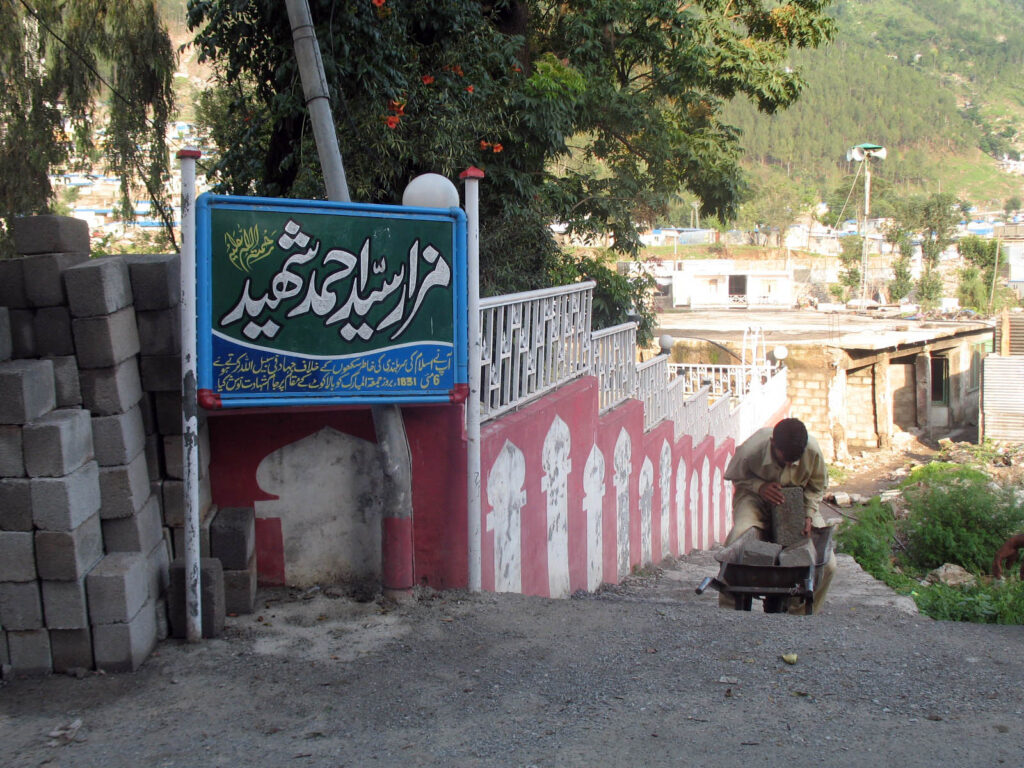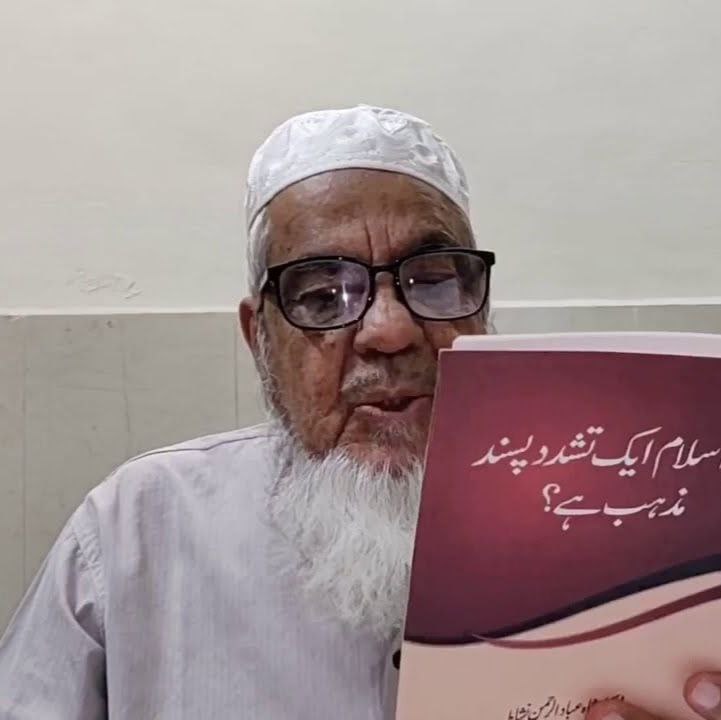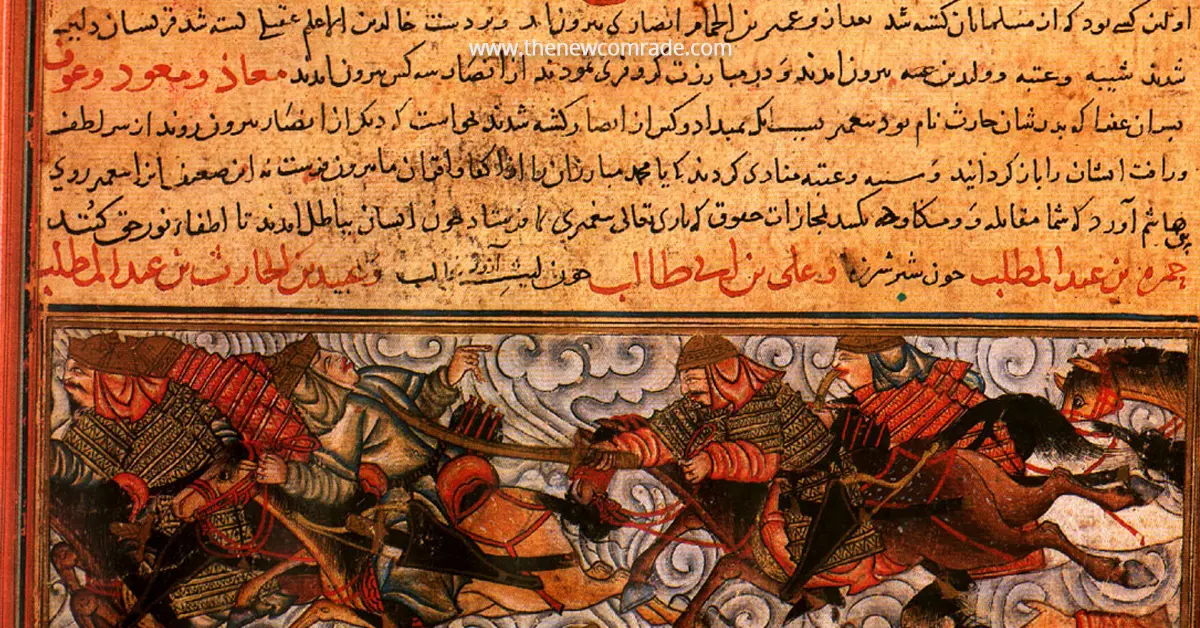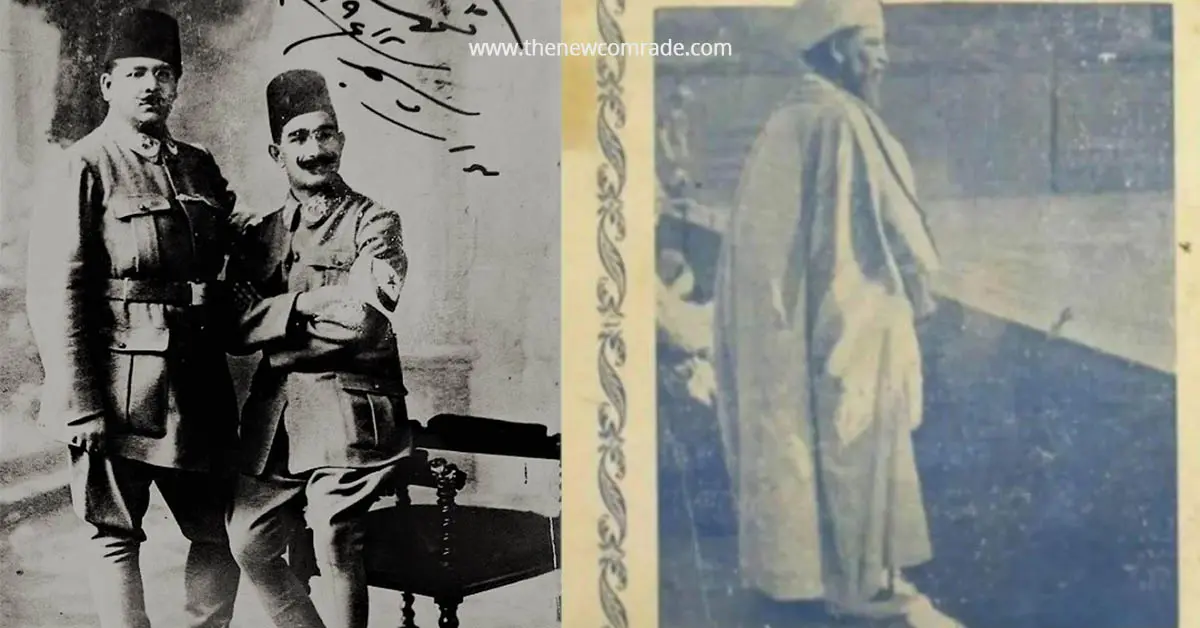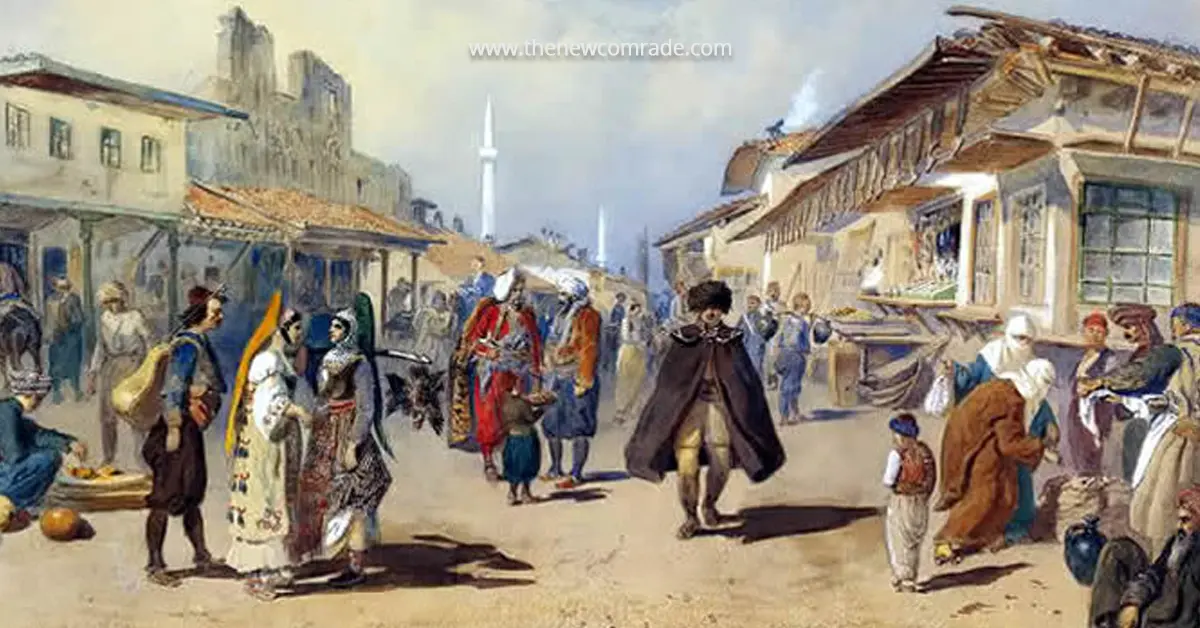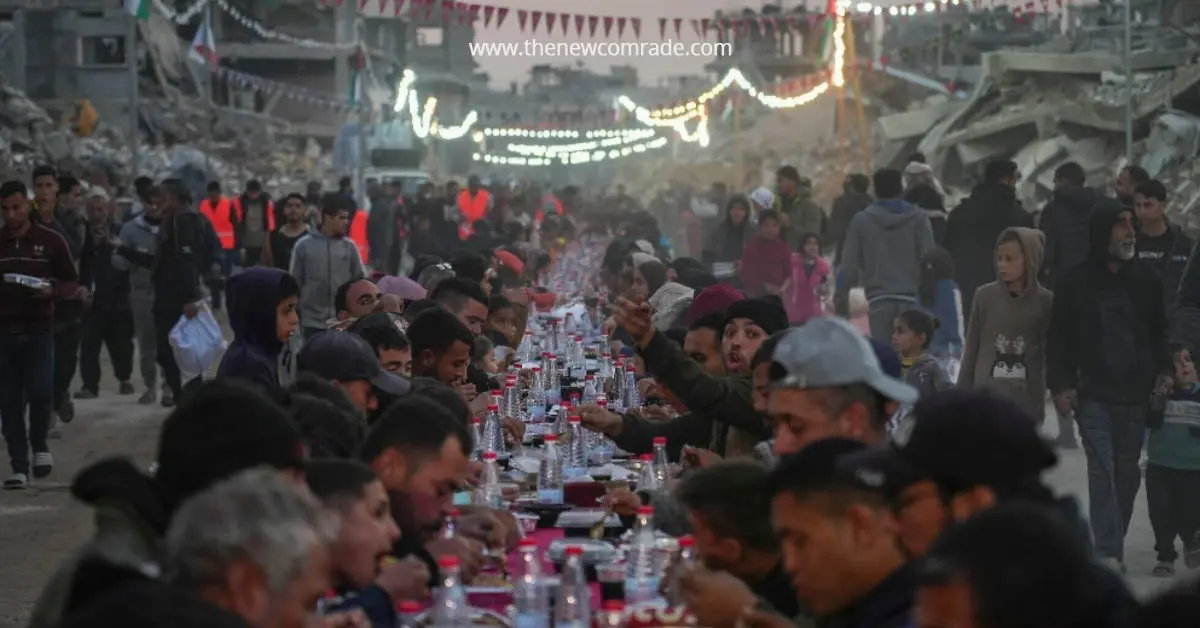When Sayyid Ahmad was giving a call to Indian Muslims to return to the true teachings of Islam, a very serious threat to a fundamental pillar of Islam- the Hajj- was working its way in the Muslim society. The sea route to Makkah had become unsafe those days due to the incursions of the Portuguese and the English sailors on the ships of the pilgrims, and so sometimes ships were drowned in the sea and lives were lost. On this pretext, some scholars of India issued a Fatwa (religious verdict) that Hajj was no more obligatory for Indian Muslims, as safety of passage, a condition for the obligatoriness of Hajj, was not available to them. This created a great confusion among Muslims. A copy of a Fatwa against the obligatoriness of Hajj for Indian Muslims was presented to Sayyid Ahmad when he was in Lucknow. Naturally, he became very concerned about the situation. He came to the conclusion that somebody from India should perform Hajj with a large group of pilgrims and publicize it as widely as possible in order to establish that the threat to life and property in the Hajj journey was inconsequential.
Sayyid Ahmad was preparing then to migrate to the Frontier to establish a center for Jihad there. But he postponed his plan and decided to perform Hajj first with a view to establish its obligatoriness for Indian Muslims. He announced that he had decided to go for Hajj the following year and that everybody who wished to accompany him was welcome. He took the responsibility to meet the travel expenses of all who would join him for the pilgrimage. In order to publicize his plan, he wrote letters to his followers at important places and asked them to encourage people to join him for performing Hajj and bring as many persons as would get ready for it.
“If I invite people for Hajj, I do so with faith in Allah the Beneficent and Compassionate, and I have confidence that by His mercy this mission will be completed successfully.”
Sayyid Ahmed Shaheed: Life Mission and Contributions (Page: 35)
When preparations were afoot, some persons raised the question of financial resources, but Sayyid Ahmad remained composed and confident and replied: “If I invite people for Hajj, I do so with faith in Allah the Beneficent and Compassionate, and I have confidence that by His mercy this mission will be completed successfully.” To his relatives who knew his poor financial condition and were surprised at his offer to finance the trip, he used to say: “The present shortage of means is only up to the time that I am in Rae Bareli. As soon as I step out, people will see how Allah the Cherisher of the Worlds provides for us from unexpected sources and raises people for our help.”
On Monday, the 30th of July 1821 (last day of Shawwal 1236 H) Sayyid Ahmad set out from his village Daera Shah Alamullah with about four hundred people. At the first stopover he asked Muhammad Yusuf Phulati, his treasurer, to bring the money he had. He distributed it all among the poor. Then bareheaded he lifted his hands and prayed to Allah for help. Later, at a stopover he asked Sayyid Zainul Abedeen, one of his associates, to bring to him whatever amount of money was left for the expenses of the caravan.
He brought five rupees, as this was the only amount left for the purpose by that time. Sayyid Ahmad gave out that money to the needy. When he was reminded that there was no money left to meet the expenses of the journey, he answered in confidence, “The treasure of my Lord is full,” and ordered the caravan to proceed.

As Sayyid Ahmad had said earlier, the moment he came out of Rae Bareli with his associates, Allah’s help and favor surrounded him. At the very first village called Dalmao two persons with fifty associates advanced two miles to welcome him and his caravan. They were brothers and both of them wanted to serve the first meal to the auspicious travelers to Makkah which had created a dispute between them. Sayyid Ahmad accepted the invitations of both of them and persuaded the younger brother to make a sacrifice for his elder brother for the pleasure of Allah and let him entertain the Hajj caravan first.
One evening the boats stopped in an uninhabited area where there was no village or town around at a close distance. As the land by the bank of the river was wet and muddy and as it was also drizzling, the associates of Sayyid Ahmad were not able to cook for the night. They thought that perhaps they had to live without food that night. But only after a short while they saw some persons with candles coming toward them. The leader of the group turned out to be an English merchant of indigo living in that area who had come to know about the arrival of the caravan and had brought food for them. This was an unexpected provision from Allah. Sayyid Ahmad thanked the host and accepted the food he had brought.
At Allahabad seaport a number of dignitaries welcomed Sayyid Ahmad, but Sheikh Ghulam Ali, a well-known dignitary of the town, became the main host. He served the most expensive dishes to them and offered very expensive presents to Sayyid Ahmad, his wives, family members, and religious scholars accompanying him. He also provided each member of the caravan with necessary articles, such as dress, footwear, sheet, cap, Ihram (two white sheets that pilgrims wear in Hajj) and money. He also presented to Sayyid Ahmad one large and twelve small tents for convenience in the journey. Other people also offered presents to Sayyid Ahmad in cash and kind. “Thus”, as Mehr puts it, “it was by virtue of Sayyid Ahmad’s sincerity and trust in Allah that although he had come out of his home empty-handed, all members of the group were duly provided with necessary articles when he was ready to proceed from Allahabad.”
“The present shortage of means is only up to the time that I am in Rae Bareli. As soon as I step out, people will see how Allah the Cherisher of the Worlds provides for us from unexpected sources and raises people for our help.”
Sayyid Ahmed Shaheed
In Calcutta’s Munshi Ameen Ahmad, a distinguished lawyer in the service of the British government surpassed all others who were desirous of hosting Sayyid Ahmad’s caravan. He sailed in a fast boat to meet Sayyid Ahmad as soon as he crossed the River Hugli and earnestly requested him to accept his invitation to be his guest: “Several persons have made arrangements in the city for your stay, but I have reached you first. Therefore, give me your word of acceptance for staying at my place”. He had purchased a large garden having several buildings in it to host Sayyid Ahmad and the pilgrims. It also had three ponds in it: one of sweet drinking water which was so rare in Calcutta, the other for taking a bath, and the third for washing clothes. He also bought footwear and dress for the pilgrims. Some others brought clothes and Ihram.
The details of how Allah fulfilled the needs of the members of this caravan from His unbounded treasure form a very long story. Lack of space does not allow us to include even select details. A few instances are mentioned above for the sole purpose of showing that Sayyid Ahmad’s decision to take the pilgrimage journey without necessary material preparations was not emotional; it was intuitive and inspirational, based on trust in Allah and on cognizance of His approval and promise of favours. He once mentioned this fact to the pilgrims in these words: The Lord of the worlds who is the Master of resources and Absolute Cherisher has promised me that my companions in this journey are His guests and that I should not worry about their food and clothes in this journey.”
The states of Uttar Pradesh, Bihar, and Bengal, which fell en route to Sayyid Ahmad’s caravan, saw an unprecedented moral, social, and religious revolution. Wherever Sayyid Ahmad stayed, all prevalent and popular rites of polytheism and innovation were eradicated, moral and social un-Islamic practices remarkably diminished, and Muslims returned to the fold of pure and simple teachings of Islam. Even non-Muslims were blessed with the teachings of Sayyid Ahmad and his associates and a large number of them willingly accepted Islam.
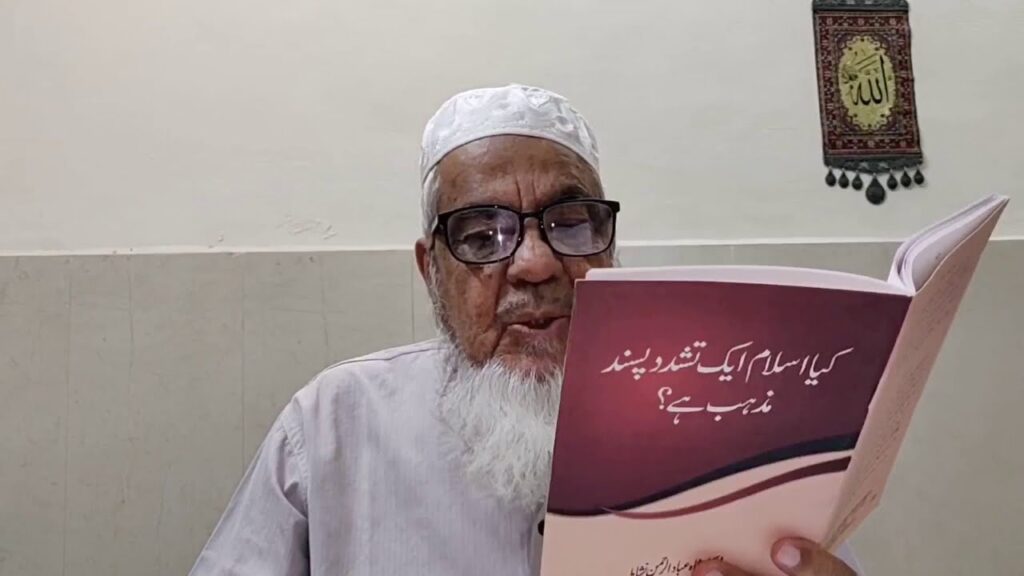
After a stay of three months in Calcutta, where final arrangements for renting ships had to be done, Sayyid Ahmad sailed to Makkah in ten ships with seven hundred and fifty-three associates . On the day of his departure people gathered in such a large number to bid him farewell that the traffic on the main roads was blocked. Sayyid Ahmad distributed alms to the poor, said farewell greetings to the people who had come to see him off, and sailed in a boat to board the ship. People who wished to catch his glimpse until the last moment walked along the bank of the river as long as they could see his boat; some sailed in their personal boats to see him off and returned late evening only when darkness became thick.
Sayyid Ahmad reached Jeddah on May 16, 1822 (23 Shaban 1237 H), where he stayed for five days. On May 20, 1822 (27 Shaban 1237 H) he proceeded to Makkah al-Mukarramah (the holy Makkah), entered the holy city on the 21st of May, 1822 (29 Shaban 1237 H) and performed Umrah. He spent the month of Ramadan in Makkah and utilized every moment of the holy month in performing Umrah, Taraweeh and other virtuous deeds. For the last ten days of Ramadan he stayed in the al-Haram Masjid for E’tekaf” (staying in Masjid for certain number of days).
During his stay at Makkah, Sayyid Ahmad soon became the center of attraction for the scholars there. On the day of Eid al Adha (Eid of sacrifice), Muhaddith Sheikh Umar bin Abdur Rasool Hanafi, a scholar of great renown and piety of the Hanafi school, came to meet him. That day a large number of people paid visit to him. Scholars, dignitaries, and commoners all alike showed exemplary respect to him during his stay in Makkah.
The states of Uttar Pradesh, Bihar, and Bengal, which fell en route to Sayyid Ahmad’s caravan, saw an unprecedented moral, social, and religious revolution. Wherever Sayyid Ahmad stayed, all prevalent and popular rites of polytheism and innovation were eradicated, moral and social un-Islamic practices remarkably diminished, and Muslims returned to the fold of pure and simple teachings of Islam
At last the time of Hajj, for which they had covered such a long distance, arrived. On the 8th of Zul Hijjah, 1237 H, Sayyid Ahmad said a very long and moving supplication at Hateem in al-Haram. All present were moved to tears. He then started for Mena with his associates and completed all rites of Hajj with great devotion and sincerity. In total he stayed in Makkah for about five months.
After the Hajj was over, Sayyid Ahmad started making preparations for going to Madinah al-Munawwara, the city of the holy Prophet. Out of respect, he decided to leave arms at Makkah, although the danger of encountering the Bedouin outlaws attacking such caravans was there. He took this journey on the 5th of Safar and stayed at Madinah until the 28th Rabiul Awwal 1238 H. On the 29th he left for Makkah and performed Umrah after reaching there. Again, a large number of dignitaries and scholars visited him to welcome him: the Imams of all four Musallahs were: them. He spent the second Ramadan in Makkah.
Return to India
On June 25, 1823 (15 Shawwal, 1238 H) Sayyid Ahmad started making preparations to return to India. He left Makkah on the 1 of Zul qada and reached Jeddah the other day. On his way back to India he came through Bombay to Calcutta. Wherever he stayed, people gathered around him in large numbers and benefited from his teachings and discourses. Everywhere the hospitality accorded was warm, eager and exemplary. At Murshidabad, for example, the caravan stayed at the house of Diwan Ghulam Murtuza. Adjacent to the house was a market. The Diwan announced that he would pay for whatever the companions of Sayyid Ahmad bought from the shops.
From Allahabad Sheikh Ghulam Ali’s son advanced to a place called Mirzapur at the instruction of his father to receive Sayyid Ahmad. From Mirzapur till Allahabad Sheikh Ghulam Ali rendered exceedingly generous hospitality to Sayyid Ahmad and his caravan. To all the pilgrims, and also to the local people who had joined them in the way or had come from the neighbourhood to meet Sayyid Ahmad, Ghulam Ali served very rich meals. When Sayyid Ahmad wanted to stop him from this lavishness, he submitted: “I couldn’t serve you up to my aspiration. Whatever I do is for my hereafter.”
